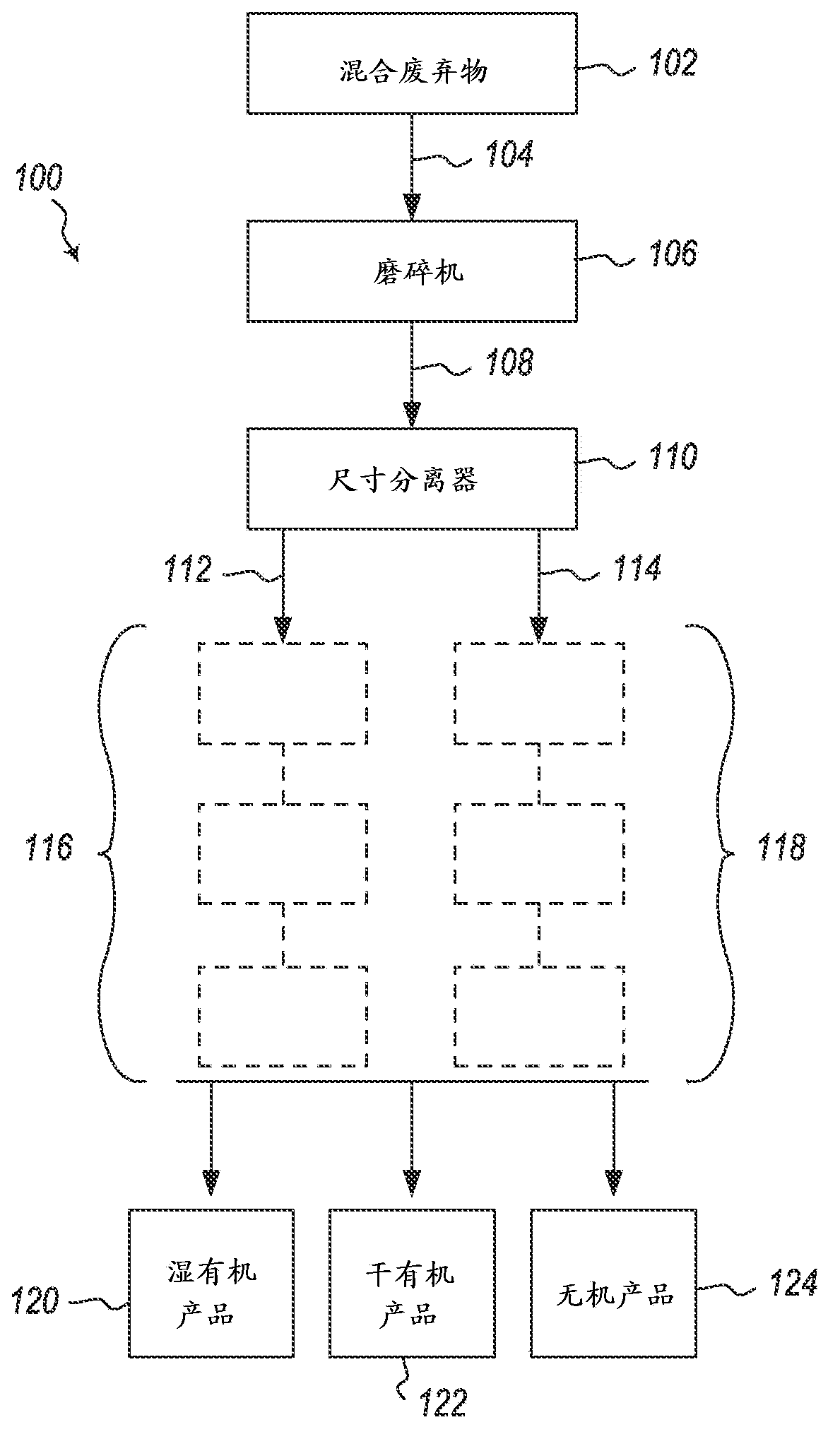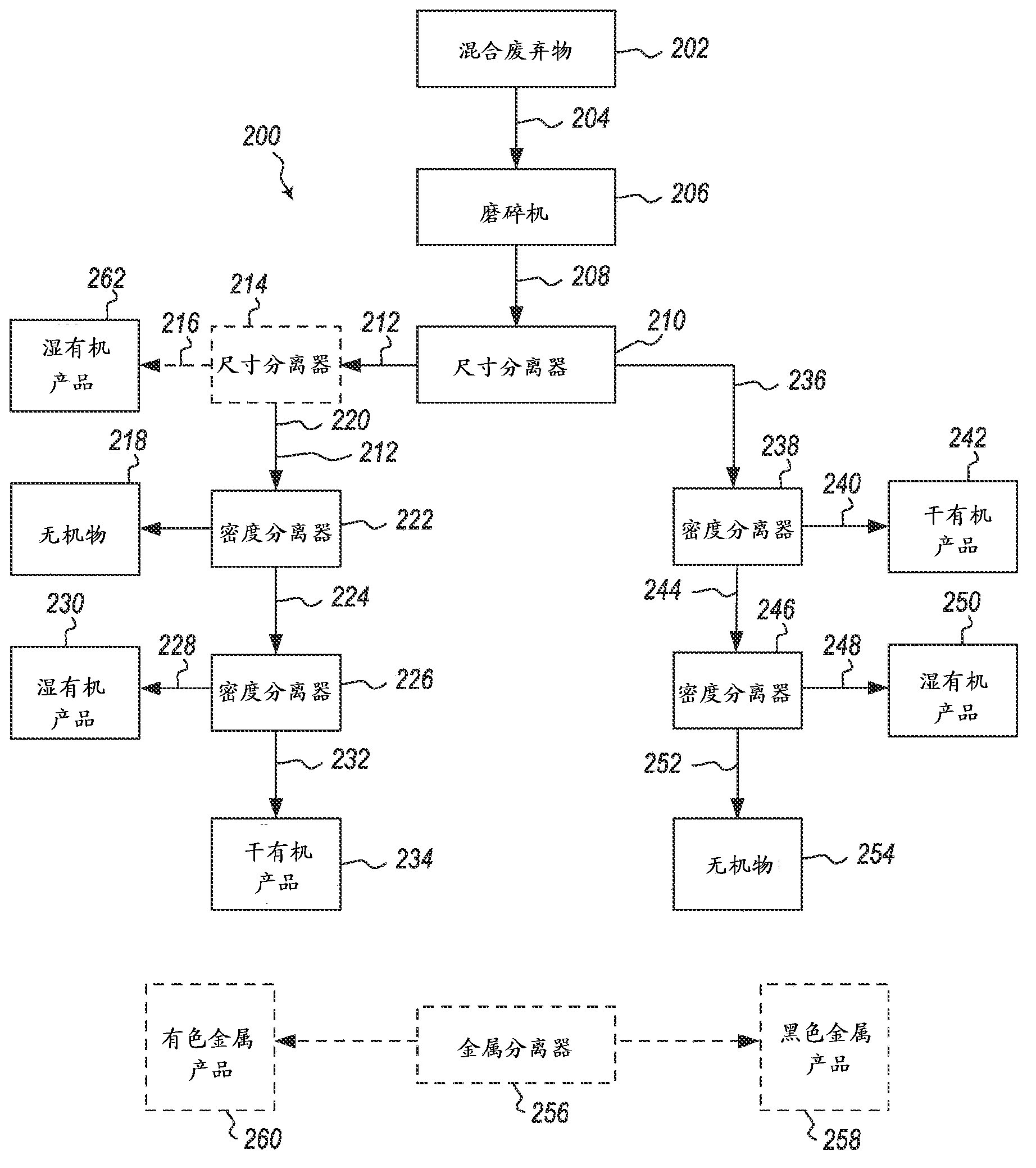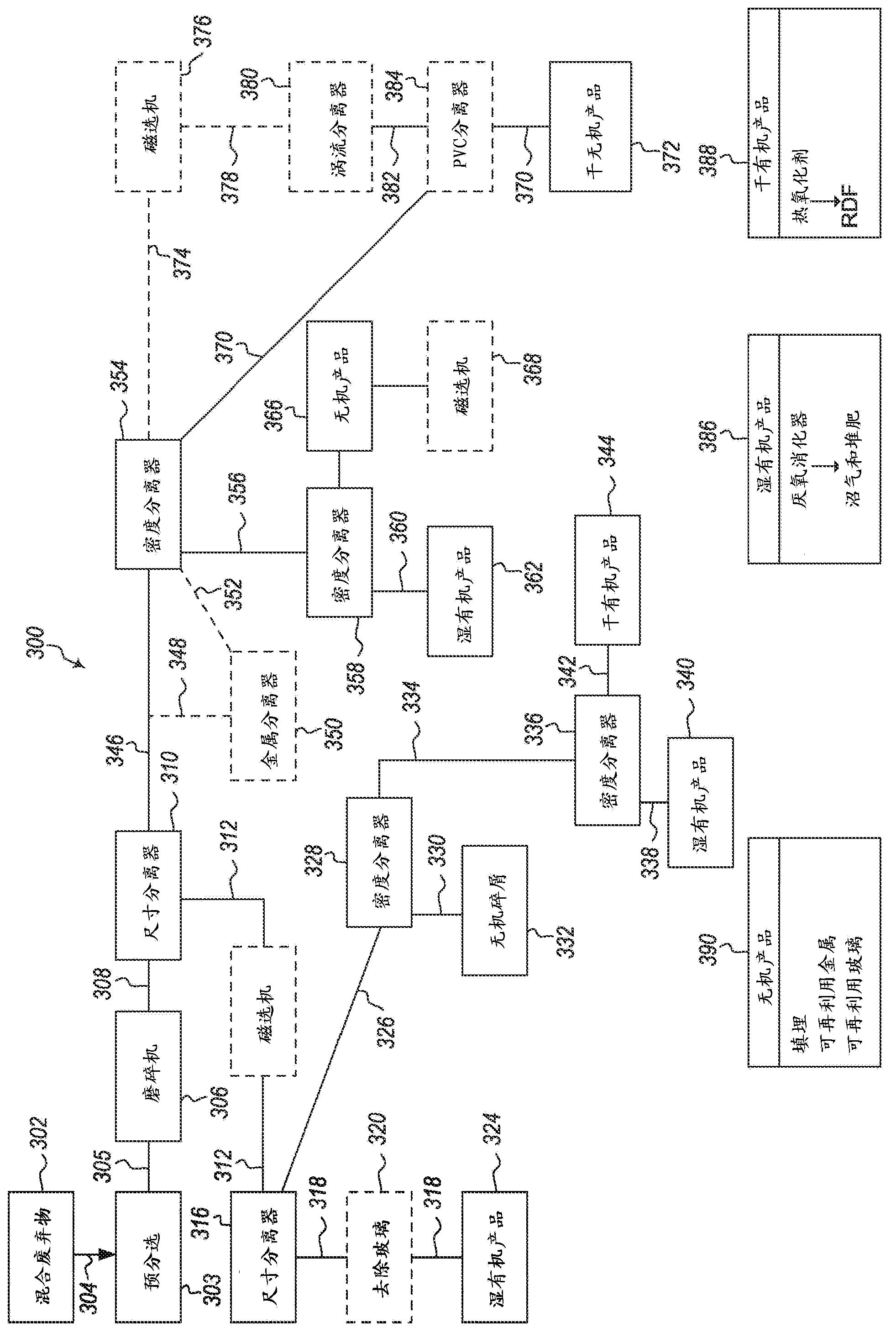Mechanized separation of wet and dry materials in a solid waste stream
A solid waste and solid waste technology, applied in the field of producing a large number of discarded products and methods, can solve the problems of low energy balance, waste, and low efficiency of the recycling system
- Summary
- Abstract
- Description
- Claims
- Application Information
AI Technical Summary
Problems solved by technology
Method used
Image
Examples
Embodiment Construction
[0030] I. Introduction and Definitions
[0031] Municipal solid waste ("MSW") (i.e., waste or garbage) is a category of waste material that consists primarily of household waste, sometimes with additional Commercial waste collected by the unit. They are in solid or semi-solid form and generally do not include industrial hazardous waste.
[0032] MSW contains many components that have energy values if properly separated, isolated and processed. For example, MSW can contain large quantities of organic waste materials (e.g., food and kitchen waste, green waste (e.g., yard clippings, plants, vegetation, branches, lawns, etc.), paper, textiles, rubber, plastics, and Recycled materials (such as cardboard and some paper products, glass, ferrous, aluminum and other non-ferrous metals, and certain plastics), and inorganic waste (such as concrete, dirt, rocks, and debris). Rather than grouping nearly all MSW categories together and sending them to landfill or incineration, any and ...
PUM
 Login to View More
Login to View More Abstract
Description
Claims
Application Information
 Login to View More
Login to View More - R&D
- Intellectual Property
- Life Sciences
- Materials
- Tech Scout
- Unparalleled Data Quality
- Higher Quality Content
- 60% Fewer Hallucinations
Browse by: Latest US Patents, China's latest patents, Technical Efficacy Thesaurus, Application Domain, Technology Topic, Popular Technical Reports.
© 2025 PatSnap. All rights reserved.Legal|Privacy policy|Modern Slavery Act Transparency Statement|Sitemap|About US| Contact US: help@patsnap.com



